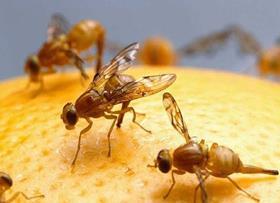
A four-year project looks set to provide Australian growers and exporters with a new phytosanitary treatment option.
Funded by Hort Innovation and research partners and led by CSIRO, the A$5m project will develop systems approach protocols for preventing and handling risks across the supply chain.
These protocols will also require regular testing of the system and the maintenance of adequate records.
While not widely used in Australia, a number of countries have been successful in developing systems approaches and having them accepted by lucrative Asian markets such as China.
Hort Innovation chief executive John Lloyd said the project aims to provide growers with more options to meet market access requirements.
“Maintaining areas in Australia that are free from pests, such as fruit fly and codling moths, has been one important way for producers to access domestic and then international markets,” Lloyd said. “For produce grown outside of those areas, options such as cold treatment and methyl bromide fumigation make market access possible in some situations.”
“This systems approach should provide another option for industries who face limited phytosanitary treatment options due to the negative impacts they can have on fruit quality or the declining numbers of chemical treatments available.”
CSIRO senior research scientist, Rieks Van Klinken, said the project aimed to support growers and help stop the spread of pests in Australia.
“This project is aiming to see how different combinations of pest measures can reassure importers and regulators that produce is pest-free,” Van Klinken explained.
“Pests such as Queensland fruit fly (Qfly) are hugely damaging to Australian growers, so with this project our aim, in tandem with our other efforts against Qfly and horticultural pests, is to help open up lucrative domestic and international markets.”
Once complete, the systems approach protocols will be supplied to government regulators to support interstate and international market access negotiations.



